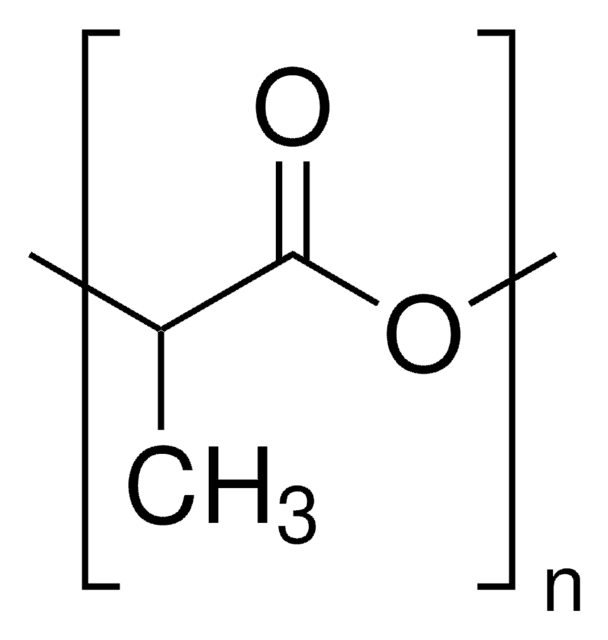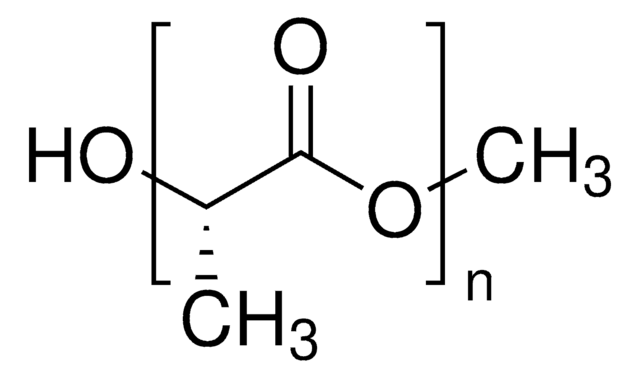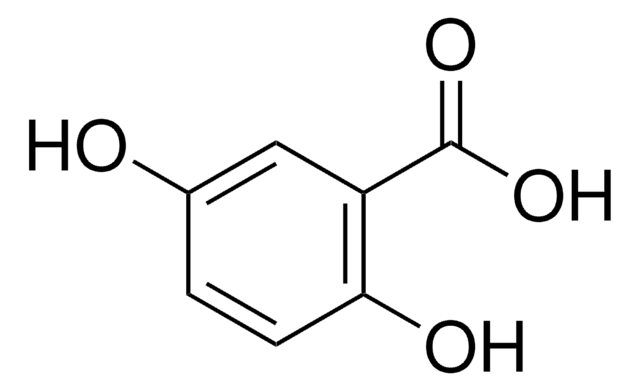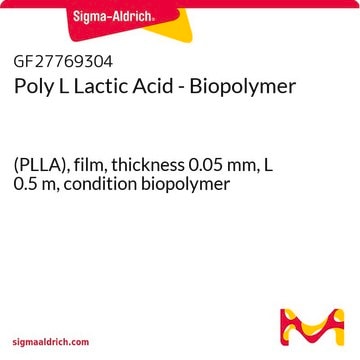81273
Poly(L-lactide)
viscosity ~2.0 dL/g, 0.1 % (w/v) in chloroform(25 °C)
Synonym(s):
L-Lactide polymer, PLA, Poly(L-Lactic acid)
About This Item
Recommended Products
description
ester terminated
Quality Level
form
solid
mol wt
Mw ~260,000
degradation timeframe
>3 years
impurities
≤0.5% water
ign. residue
≤0.1%
viscosity
~2.0 dL/g, 0.1 % (w/v) in chloroform(25 °C)
Mw/Mn
~1.5
Looking for similar products? Visit Product Comparison Guide
Application
Other Notes
Storage Class
11 - Combustible Solids
wgk_germany
WGK 3
flash_point_f
Not applicable
flash_point_c
Not applicable
ppe
Eyeshields, Gloves, type N95 (US)
Choose from one of the most recent versions:
Already Own This Product?
Find documentation for the products that you have recently purchased in the Document Library.
Customers Also Viewed
Articles
Interest in utilizing biodegradable polymers for biomedical applications has grown since the 1960s.
Aliphatic polyesters such as polylactide, poly(lactide-co-glycolide) and polycaprolactone, as well as their copolymers, represent a diverse family of synthetic biodegradable polymers that have been widely explored for medical uses and are commercially available.
Aliphatic polyesters such as polylactide, poly(lactide-co-glycolide) and polycaprolactone, as well as their copolymers, represent a diverse family of synthetic biodegradable polymers that have been widely explored for medical uses and are commercially available.
In the past two decades, tissue engineering and regenerative medicine have become important interdisciplinary fields that span biology, chemistry, engineering, and medicine.
Our team of scientists has experience in all areas of research including Life Science, Material Science, Chemical Synthesis, Chromatography, Analytical and many others.
Contact Technical Service









